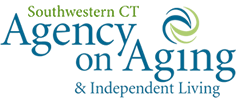Every fall, seniors and their families struggle to make the right choices when it comes to their Medicare coverage, because choosing the wrong supplement could result in significant issues – like the loss of a favorite doctor, paying more than necessary for essential prescriptions, or overpaying for coverage that isn’t needed. But there’s a better way to make a wise decision than simply guessing: working with a CHOICES volunteer.
These volunteers are here to help guide seniors through Medicare Open Enrollment, which this year runs through December 7. Volunteers come from all walks of life. Longtime volunteer Marna Schirmer, for example, is a retired nurse, but there are social workers, doctors, lawyers and many more professionals among CHOICES’ volunteer ranks. All go through intense training to be certain they are ready to deal with each participant’s unique questions and needs.
That’s essential because every senior’s medical history and current needs are unique, and it takes time to identify the plan that best suits them. CHOICES volunteers offer unbiased advice that is not motivated by profit. As Schirmer explains, many seniors suffer when they rely on an insurance broker to guide them toward the right plan. “You don’t want someone who is making money from your decision to be helping you make your decision. Brokers have a conflict of interest. They are giving you advice, but they are basically also selling the plan that they make the most money off of,” she notes. CHOICES volunteers, on the other hand, take the time to understand each senior’s unique medical situation and then guide them toward the least expensive plan that works best for them.
Best of all, working with a CHOICES volunteer is an option for everyone. Their services are free and are not dependent on income. “Anyone can receive our services, we are open to everyone and anyone,” she notes.
Need more information on reaching a CHOICES volunteer, scheduling your appointment or what type of information you need to bring to that appointment call us at 1-800-994-9422.
This project was supported, in part by grant number 90SAPG0068-01-00, from the U.S. Administration for Community Living, Department of Health and Human Services, Washington, D.C. 20201. Grantees undertaking projects under government sponsorship are encouraged to express freely their findings and conclusions. Points of view or opinions do not, therefore, necessarily represent official Administration for Community Living (ACL) policy.

